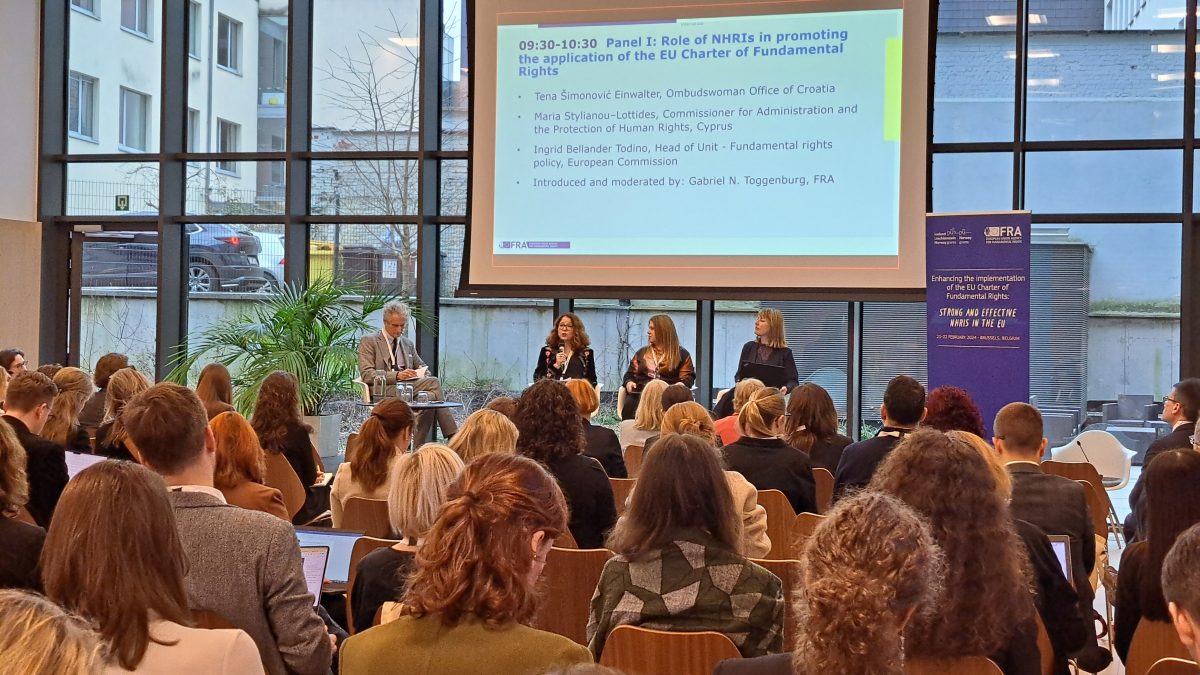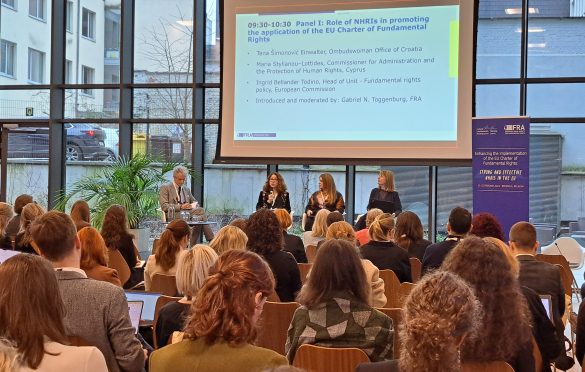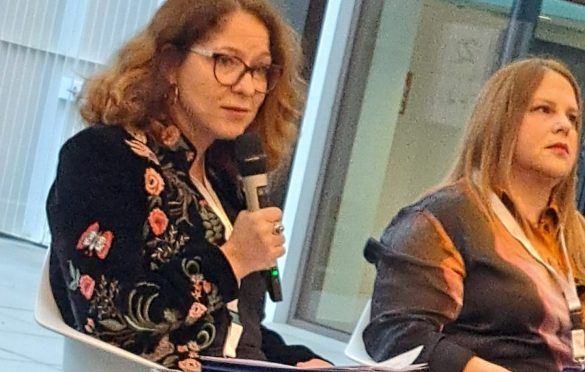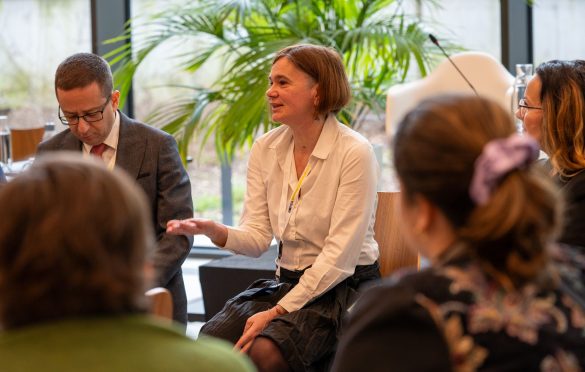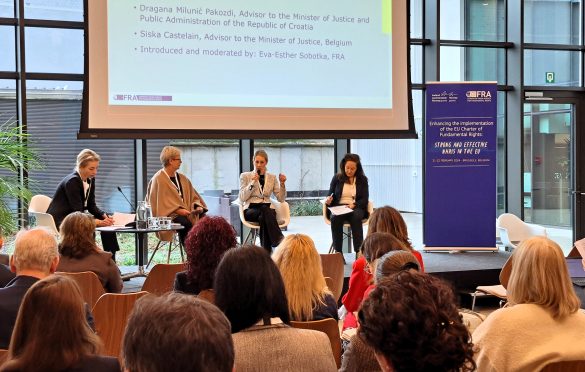National institutions for human rights, such as the Ombudsman institution in Croatia, play a key role in realizing the fundamental rights of citizens and in promoting EU values: fundamental rights, democracy and the rule of law.
This role was recognized and further strengthened with the help of the project “Supporting National Human Rights Institutions (NHRIs) in monitoring fundamental rights and the fundamental rights aspects of the rule of law “.
The goal of the project was to advance the application of the Charter of Fundamental Rights of the European Union, one of the fundamental documents in the field of human rights protection and the rule of law in the EU. We participated in the project as partners of the EU Agency for Fundamental Rights (FRA), together with NHRIs from Slovenia, Slovakia, Bulgaria, Latvia, Poland and Cyprus, as well as the European Network of National Institutions for Human Rights (ENNHRI).
The project was completed with an international conference on February 21 and 22, 2024. in Brussels. Ombudswoman Tena Šimonović Einwalter spoke in the first panel on the topic “Role of NHRIs in promoting the application of the EU Charter of Fundamental Rights “.
“National human rights institutions play an important role in encouraging the implementation of the Charter in our countries, as highlighted in the EU strategy to strength the implementation of the Charter, which recognizes us as those who reduce the “gap” between the rights of citizens and the responsibility of the state. Through our broad mandate, we use the Charter in numerous activities – when monitoring the state of human rights and reporting to the Croatian Parliament, in dealing with complaints, in the education and training on human rights that we conduct and in raising awareness on human rights”, said Ombudswoman Šimonović Einwalter.
She also reminded that the enabling space for the NHRIs is an important benchmark of rule of law in the reports of the European Commission, as well as the goal of the Commission’s recommendations to member states. Thus, in the fourth annual report on the rule of law, one of the recommendations to the Republic of Croatia is to further improve the implementation of recommendations and respond more systematically to the Ombudswoman’s requests for information.
The Ombudswoman compared the situation with equality bodies, which in Croatia is also one of the mandates of our institution, reminding that two directives will soon enter into force that will determine the standards for their work. “Standards at the European level are very important for the position of independent institutions in the member states,” emphasized the Ombudswoman.
This is especially important because, as the participants of this international conference agreed, the previous year has brought new challenges for the protection of human rights and the rule of law at the level of the European Union. “Challenges to the rule of law require an even closer exchange of information and best practices beyond borders. Regional cooperation can empower NHRIs to play out their role more effectively, by pooling their resources, expertise and influence,” said Ragna Fidjestøl, Managing Director of the EEA Financial Mechanism and the Norwegian Financial Mechanism (EEA and Norway Grants), which financed the project.
One of the results of the project is the concluding statement “Strengthening the implementation of the Charter of Fundamental Rights of the European Union: strong and effective national institutions for human rights in the EU”, which offers the European Commission and member states proposals for further steps in this direction. You can read the statement here (in English).
By implementing this project, we organized a whole series of activities in Croatia: training on the application of the Charter for Ombudswoman advisors, training for civil servants working on EU funds and training for civil society organizations. Among other things, we also organized discussions in Osijek, Rijeka, Split and Zagreb on the rule of law, with a focus on various aspects of the latest Report on the rule of law of the European Commission for the Republic of Croatia.
We thereby helped to strengthen the capacities of civil servants who participate in the preparation of policies and the use of European Union funds. This activity was presented to the participants of the conference by the deputy Ombudswoman Tatjana Vlašić, where she stated that the response to the training was extremely good, and the numerous practical examples of the application of the Charter were most useful to the participants.
The project also confirmed the strength of cooperation and the importance of open and continuous dialogue on human rights between national stakeholders, representatives of the executive power, us as a national institution for human rights and civil society. Thus, on this occasion, our institution acted as a bridge, that is, one that brings together different actors for the sake of stronger protection and promotion of human rights and the rule of law in Croatia.
In the spirit of this cooperation, representatives of state bodies and civil society from Croatia participated in the final conference – Dragana Milunić Pakozdi from the Ministry of Justice and Administration, Gordana Obradović Dragišić from the Ministry of Regional Development and European Union Funds, Klaudija Kregar Orešković from the Office for Human Rights and rights of national minorities of the Government of the Republic of Croatia, Marina Škrabalo from the Solidarna Foundation, Ivan Novosel from the Human Rights House Zagreb and Natalija Havelka from the Center for Peace, Nonviolence and Human Rights from Osijek. A day before the conference, a workshop was held on the EU funds compliancy with fundamental rights, in which Natalija Šimunović from the Ministry of Regional Development and EU Funds participated, along with some of the already mentioned representatives from Croatia.


